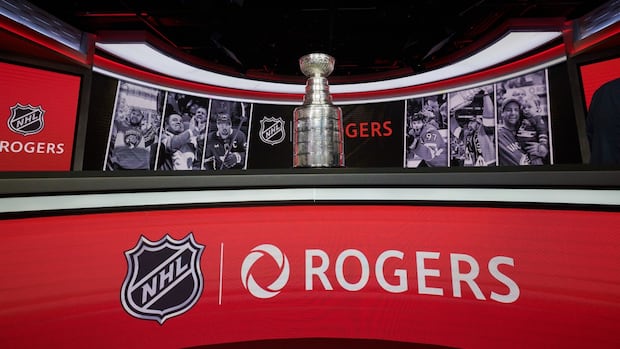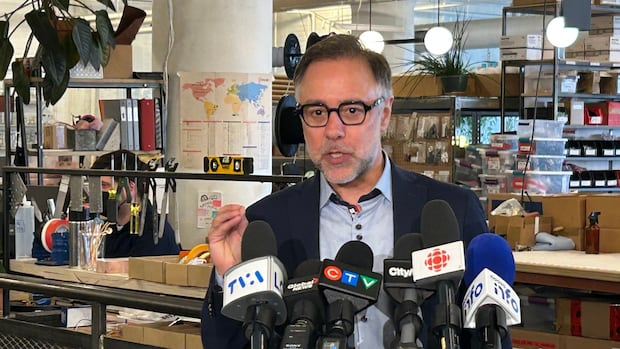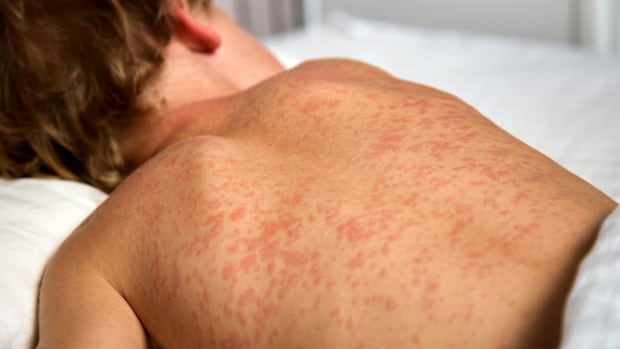Saskatchewan adults might not have sufficient immunity to the latest measles outbreak and are being asked to check their vaccination records and get a booster shot if needed.
Cases of measles, which is highly contagious and can lead to serious complications, have been on the rise across Canada recently and there were three cases in Saskatchewan in March.
Although the Saskatchewan Health Authority (SHA) is recommending people check their vaccination records, there is one catch — the SHA doesn't have childhood immunization records for anyone prior to 1978.
"It can be really confusing if you don't have access to those records," said Ryan Meili, a family doctor practicing in Saskatoon. "Maybe you have a history of being told when you were a kid you had measles, but it was never documented."
Booster shotsAnyone born between 1970 and 1996 needs a booster shot to be fully protected against measles, according to guidance Meili said the SHA has given doctors.
That's because the protocol during those years was for just one dose of the vaccine and Meili said studies have shown two doses, the standard since 1996, provides better protection against catching and spreading the virus.
"The first dose did decrease the transmission. But then getting that second dose into the schedule really did the trick," Meili said.
Joseph Blondeau, head of Clinical Microbiology at Saskatoon's Royal University Hospital and provincial lead for clinical microbiology with the SHA, said parents should also make sure their children are up to date on their vaccinations.
According to the province, only 75.5 per cent of Saskatchewan children received both recommended doses of the Measles Mumps and Rubella (MMR) vaccine by their second birthday in 2024.
Blondeau said that number should be closer to 97 per cent to achieve herd immunity, which is when enough of the population is either vaccinated or has acquired immunity to prevent disease spread.
"Measles is a highly, highly, highly contagious virus," Blondeau said.
"If you've not been immunized, the recommendation is for two doses. If you're partially immunized, the recommendation is for a single boost."
Who doesn't need a booster?Anyone born before 1970 is considered immune.
That's because measles infections were so widespread prior to public vaccination programs, that anyone alive prior to 1970 is presumed to have caught the disease and acquired lifetime immunity.
 Child with a classic measles rash after four days. (CDC)
Child with a classic measles rash after four days. (CDC)But there's a caveat.
Blondeau said current Government of Canada guidelines recommend people born prior to 1970, but in a high risk group, including health-care workers or people travelling internationally, might need a booster shot.
People in that age and risk group should talk to their family doctor about getting a booster shot or getting blood work done to check for immunity, Blondeau said.
Those same older adults should also look into their immunity now that Saskatchewan has three confirmed cases of measles, Blondeau said.
Anyone with documented proof of either contracting measles, or receiving two doses of the MMR vaccine doesn't need a booster shot.
"If you have clear evidence that you had measles and that's documented somewhere, you have lifelong immunity," Blondeau said.
Childhood immunization recordsBlondeau said people can check with their family doctor to see if their childhood immunization records are available.
The SHA also has links for people in different areas of the province to request childhood immunization records.
However the SHA doesn't have records for anyone born prior to 1978.
"It is a little unclear what exactly the SHA is recommending in that case if there are no records. But the general response would be to give that first dose in the absence of any records," Meili said.
For those with no records, Blondeau said there is no harm in getting the MMR vaccine even if you had measles as a child, or might have already had two doses.
The SHA provides the MMR vaccine free of charge to Saskatchewan residents who haven't received both shots, or who need to boost their immunity according to SHA guidance.
"These vaccines are incredibly safe," Blondeau said.
Who should check for immunity?Blondeau said that's a conversation people can have with their doctor.
And it's one he recently had to consider when travelling out of the country.
Blondeau said his wife's childhood vaccination status and immunity weren't clear.
Despite his expertise in the area, Blondeau said they decided to take the advice of their health-care provider, who suggested getting the booster shot instead of checking for immunity through blood work.
"We just phoned and asked for an opinion. We just followed the recommendation."
What is measles?Measles is a highly infectious virus that is spread through the air. Symptoms generally include fever, runny nose, rash and cough, but can lead to severe complications including respiratory failure and swelling of the brain.
In the most severe cases, measles can lead to death.
It was declared that measles had been eliminated from Canada in 1998 due to the success of public immunization programs.
However, declining vaccination rates have resulted in a resurgence of the disease.
A measles outbreak in Europe last year resulted in 127,000 infections and 38 deaths, according to the World Health Organization.













